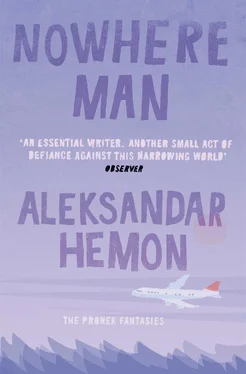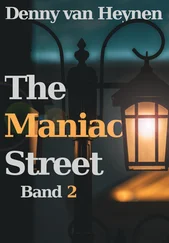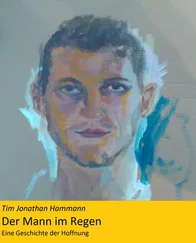“Long time ago,” Marcus said. “I fell in love with a majestic, passionate woman, but circumstances too-fatuous-to-detail took me elsewhere.”
Mihalka’s head popped in again without knocking and Robin’s face changed into a grimace of mild annoyance.
“Teacher,” Mihalka said. “I must tell you.”
Robin got up, rolled her eyes to the tilt, and went out. Marcus surveilled my face, trying to get into my eyes, then nodded, having found the expected evidence.
“You know a lot about hardship, don’t you?” he said.
“I do not know,” I said, uncomfortably. “Which hardship?”
“You look like someone who knows a lot.” He sighed, as if recalling a host of pleasant memories, and turned toward the window.
Robin walked back in, shaking her head and rolling her eyes, as if she had just heard the strangest confession.
“Why don’t we visit a few classrooms,” Marcus said, “so you can see what takes place in them.”
“All right,” I said.
“I do not understand these people,” Robin said, still shaking her head. “I simply do not.”
We walked up the stairs, awkwardly careful not to be too far from or too close to one another. The back pocket of Marcus’s pants gaped open as he tiptoed delicately upward, and a bundle of envelopes was about to fall out. I ascended in the wake of Robin’s sugary perfume and the wet-bandage smell of her armpits. We stopped in front of one of the classroom doors, Robin conspiratorially whispering to me:
“This is level two, pretty basic. You might be teaching a lower level, so this could be interesting to you.”
“Do not be vexed by the student body,” Marcus said. “They are a little sedate occasionally.”
“Okay,” I said. Robin opened the door, and we walked in.
“Hi, guys!” the teacher said, the moment she saw us. “I am Jennifer.”
She had a dear-blue sweater and a lacy collar, a narrow waist and a wide skirt. She had pink lips, a pair of glasses that magnified her eyes, and a willow-tree crown of hair. There was a map of the world on the wall behind her — North America was at its center and the oceans of the world were the same hue as Jennifer’s sweater.
“Do not be surprised,” Marcus said, slowly, to the class. “We are just visiting different classes, exposing him”—he pointed at me—“to the trials and tribulations of language acquisition.”
As Marcus was speaking, the people in the class tightened, as if the classroom had contracted: the older women in the first row, the veteran mothers, sporting gigantic amber brooches on their bosoms, gripped their pencils; the men behind them, with tuber noses and the yellowish faces of chain-smokers, sunk in their chairs; a young man in the corner with a long, unkempt beard bent over his notebook. I could see a herd of distorted pyramids in the margins.
“All rightie,” Jennifer said. “We don’t mind guests, do we?”
She beamed at the class, expecting them to beam back, but they didn’t.
“Do we?” she said with a tinge of threat in her voice.
“Yes, we do,” the class chanted back.
“You mean: No, we don’t,” Jennifer said.
“No, we don’t,” the first row, only, responded.
“Okie dokie,” she said, went to the chalk board, erased “Simple Present Tense,” and wrote “Passover.” We hovered near the door, ready to escape. Marcus knotted up his arms on his chest, while Robin blinked incessantly.
“What is Passover?” Jennifer asked, and with an optimistic face panned over the class. They stared at her, not moving, congealed in collective silence.
“What is Passover? Sergei?”
Sergei — a man in his forties, with a collection of warts sprouting randomly all over his face, with the greenest eyes I had ever seen — scowled at Jennifer.
“What is Passover, Sergei?”
Sergei tightened his lips, and straightened up in his chair, clearly determined not to say a word.
“What is Passover?”
“Jewish vacation,” said a woman in the first row, in a voice like whistling steam.
“A Jewish holiday. Great!” Jennifer said. “And what do Jewish people do for Passover?”
A chair screeched in the back. The veteran mothers flipped through their books languidly. The young man in the back looked out the window. The raindrops began crawling down the pane.
“What do Jewish people do for Passover?” Jennifer asked again, not giving up on her smile, but glancing at Marcus warily.
They said nothing.
“How many of you are Jewish?” she asked, and stepped away from the chalkboard and toward them.
“Don’t be frightened,” Marcus said.
Two first-row women raised their hands, and then another half a dozen.
“Okay,” Jennifer said. “Sofya, can you tell us?”
Sofya took her glasses off — her eyes were blue and she had a crescent scar under her left eye.
“Jewish people run from Egypt,” she said, reluctantly, as if it were a well-kept secret.
“But what do they do today?” Jennifer asked.
The silence filled up every corner of the classroom. We could hear the staccato rain against the windows and the swooshing of trees, the anger and the sorrow.
“We must depart,” Marcus announced, without waiting for an answer, as Sofya’s words stopped at the edge of her lips.
“ Dosvidanya!” Sergei said.
So we departed, and as we did I could hear Jennifer saying to her class: “Oh, guys, you can do better than that.”
“This is level seven,” Marcus said. “A rather demanding body of knowledge.”
He opened the door without knocking and we burst into a small room, startling the teacher and four students. Robin slowly closed the door behind me. On the board, “Siamese twins” was written, along with “abdomen,” “ache,” “dysfunction,” “solitude.”
“You may proceed,” Marcus said. The teacher was the woman from the train, and I realized how pretty she was. She feebly smiled at us and said: “We are reading an article about Ronnie and Donnie, the Siamese twins.” She had a pointed chin: fair, boyish hair; dark eyes with two delicate eyebrow horizons. She gave us photocopies of the article. Ronnie and Donnie were facing the camera, their abdomens attached, their faces identical: large glasses, big jutted jaws, torturous smiles. They had four legs, and only one torso.
“Ugh, gross!” Robin said, and ardently widened her nostrils.
“Pretty bad,” Marcus said.
“I must say,” the man whom I recognized as Mihalka said, “that it is not perfectly pleasant when I watch them.”
“They are monsters,” said a woman in a dark, stern suit. She had long, immaculately combed white hair that tenuously touched her shoulders.
“Monsters,” repeated the young man sitting next to her. It was obvious that he was her son: the same stout apple cheeks: the same oval nostrils, the same pierogi-shaped ears; the same intense frown, as if the cheeks and the forehead conspired to squeeze the eyes out.
“They are humans,” Mihalka said, then lifted his index finger, annunciating an important statement. “When I had been a little child, I had had a friend who had had a big head.”
He made a vast circle around his head with his index finger, suggesting the immense circumference.
“Every child had told him about his big head and had kicked him with a big stick on his head. I had been very sad,” Mihalka said, nodding, as if to show the painful recoil of the big head.
“We are learning Past Perfect,” the teacher said to us, and smiled benevolently — I readily smiled back. She had chalk smudges all over her denimed thighs. The white-haired woman and her son exchanged glances.
“I must know Past Perfect,” Mihalka said, and shrugged resignedly, as if Past Perfect were death and he were ready for it.
Читать дальше












